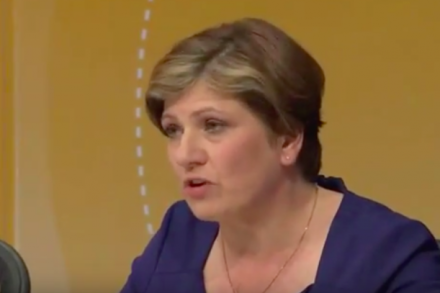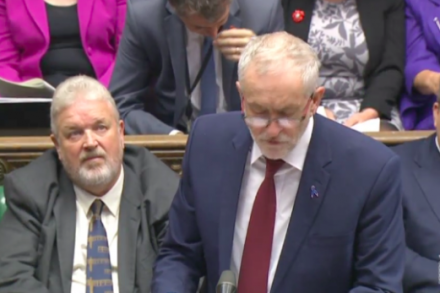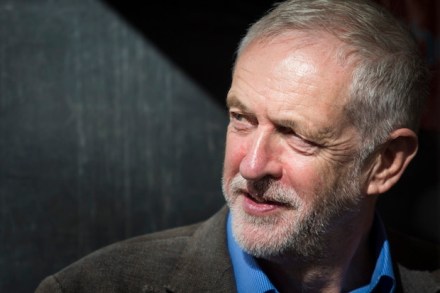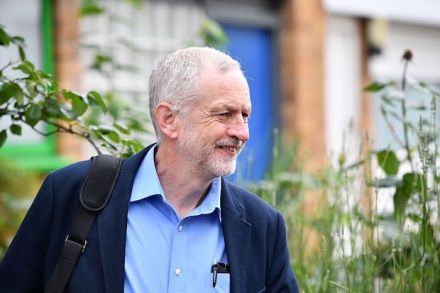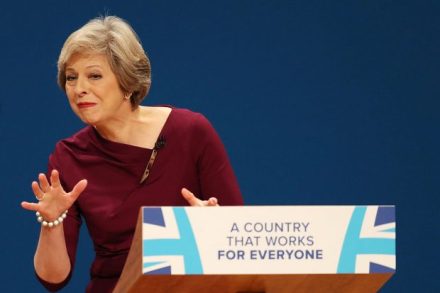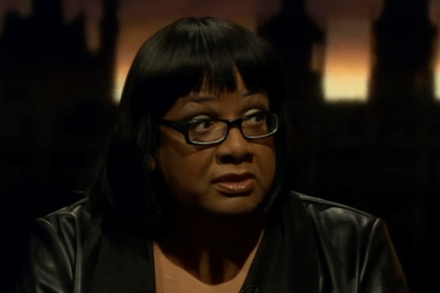Watch: Emily Thornberry's calamitous Question Time appearance
Emily Thornberry put in a memorable performance on Question Time last night. Unfortunately for the shadow foreign secretary, it was an appearance that will be remembered for all the wrong reasons. Thornberry was heckled after sucking up to Corbyn, and she managed to make the audience groan when she claimed what united Labour was ‘so much more than what divides us’ (Mr S suspects there are many Labour MPs who might disagree with that view). Thornberry also tried to claim Labour were more grown-up than the Tories, saying her party fought ‘in the press’ rather than ‘in closed rooms’. But she saved her biggest clanger for when she was talking
